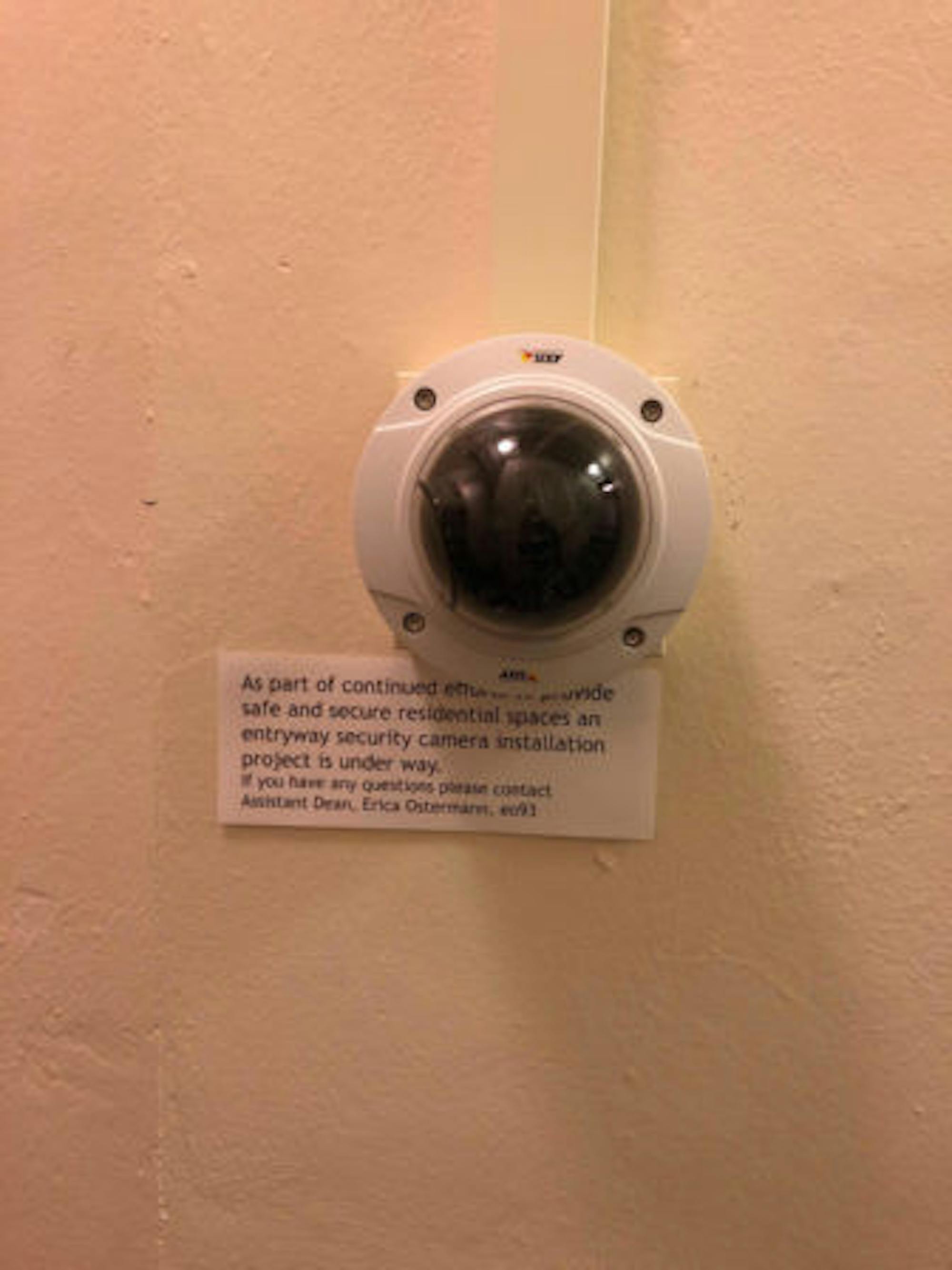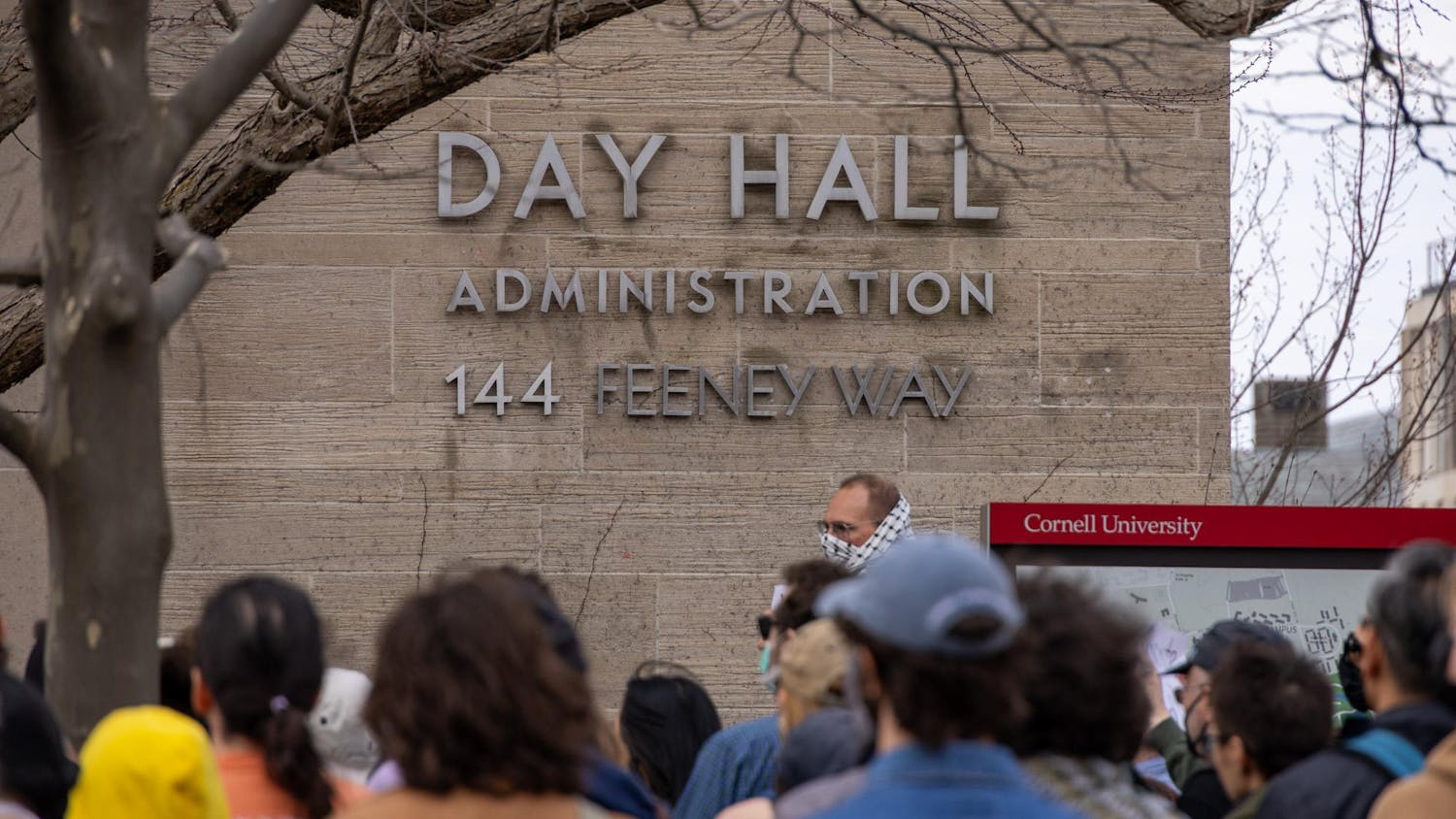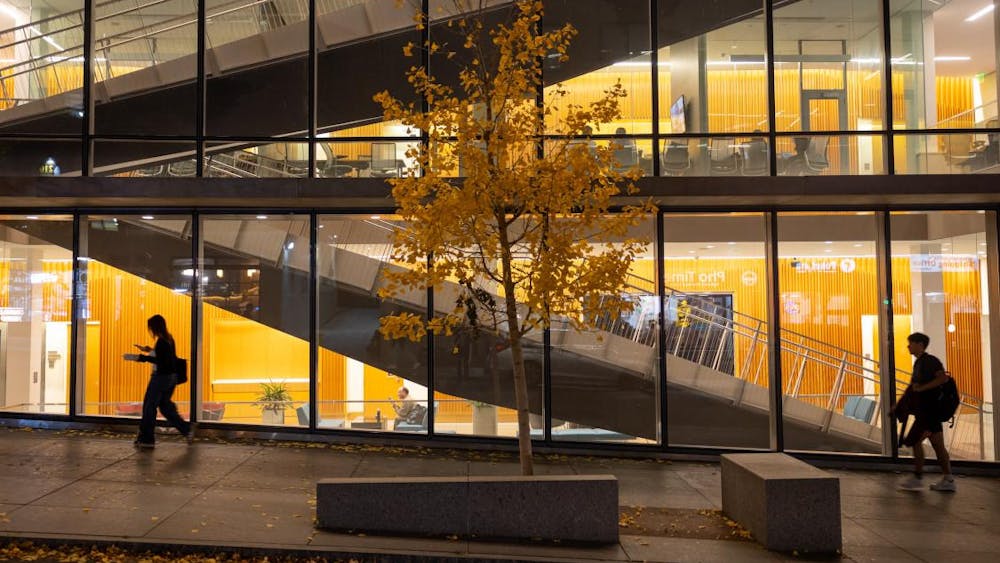A heightened security initiative will bring 24/7 surveillance to the West Campus Gothic system, with a security camera to be placed inside almost every entrance.
The facilities office is currently equipping 34 cameras in total across the nine historic halls, a part of an initiative that has been in the works for over a year, according to a statement to The Sun from Lisa Anderson, director of facilities for Student and Campus Life.
“Students and other members of the Cornell community are often surprised Cornell doesn’t have more surveillance cameras than it has,” Anderson’s statement read. With the new installation, all of the West Campus dorms will be monitored by security cameras.
The new cameras are intended to help on-campus police and other “local law enforcement agencies” to investigate and cut down on crimes, Anderson continued.
She said that security systems are “increasingly common” on campuses as centrally-managed systems become more affordable for colleges and universities.
Almost all of the Gothics’ cameras will be installed and online by the end of February, Anderson wrote. Currently, all residence hall entrances are equipped with resident-coded ID card scanner locks as a security precaution.
Last year’s annual security report recorded 14 cases of rape in residential facilities across campus in 2018, as well as 15 cases of fondling, 27 burglaries and three aggravated assaults. Nine cases of stalking in a residential facility were also reported to the Cornell University Police Department. As part of the the central system, and adherent to Cornell policy, all footage captured is viewable by CUPD. Mia Kirsch ’22, a Gothic resident, told The Sun that she didn’t really understand the need for the cameras, and that she was surprised by their installation. “I feel like [the cameras] are in really inconvenient places,” she said, standing outside the side entrance to McFaddin. “When you open the door, it’s right in your face.” Signs directing students with questions to their hall’s assistant dean were posted near the cameras — adhering to official policy — but residents have not received any official communication regarding the new eyes on the halls. Cornell’s video surveillance policy also mandates that no camera trained on a residential area can capture views “greater than what is afforded by unaided, human vision.” Facilities took this policy into account during the planning process to ensure residents’ privacy, Anderson said. The policy further states that no permanent cameras may be installed in residence hallways or lounges without a warrant and that the footage must be managed by a trained operator. However, the footage may be accessed by outside parties such as law enforcement and the Office of the University Counsel, Cornell’s legal representation.











